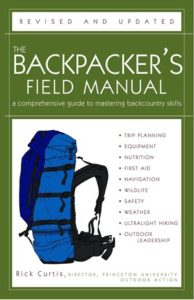I. Introduction
Those who are trained in wilderness medicine should be aware of exposure to liability when they use the skills they have learned. This can be a bit more complicated than you might think.
At the heart of the issue is the applicability of Good Samaritan laws. Generally, Good Samaritan laws are designed to provide immunity from liability for those who provide emergency assistance. Every state has a Good Samaritan statute. Also, in Canada, the provinces of Alberta (the Emergency Medical Aid Act), British Columbia (the Good Samaritan Act), Nova Scotia (the Volunteer Services Act), and Ontario (the Good Samaritan Act) have such laws. See, www.canadianlawsite.com/goodsamaritan. The model to be discussed in this paper is the law of the State of Maine, 14 M.R.S.A. Sec. 163 (immunity from civil liability), which is fairly typical. There may be different nuances in the laws of other states or in the referenced provinces in Canada.
II. Background Principles.
Before addressing the requirements for the protection of Good Samaritan laws, it is helpful to have some background.
1. There is generally no duty to render emergency assistance:
In the United States, and in other “common law countries” where the laws defining one’s duties primarily come from judicial decisions, there is no duty to help someone who is in need of assistance. Restatement of the Law of Torts, 2d, See. 314. This rule comes from the deeply rooted tradition of the inalienable rights of each individual to be master of his life. Consistent with this tradition, the law can punish you if you interfere with or harm another, but cannot require you to help another, no matter how dire the circumstances. There may be a moral duty to lend assistance, but there is no legal duty to do so.
This principle came under some public attack in connection with the highly publicized death of Princess Diana when, allegedly, the paparazzi photographed her rather than helping her in the tunnel in Paris. Indeed this incident has caused some states to consider changing the law. And there are places where the law is and has been different. For example, Minnesota has a Good Samaritan law that imposes a duty to assist on a person at the scene of an emergency to the extent the person can do so without endangering himself. See Minn. Stat. Sec. 604A.0 1 (2003). Also, in Canada in the Province of Quebec, Chapter I Section I of the Charter of Human Rights and Freedoms (1975) states that “every human being whose life is in peril has a right to assistance” and “[e]very person must come to the aid of anyone whose life is in peril, either personally or calling for aid, by giving him the necessary and immediate physical assistance, unless it involves danger to himself or a third person, or he has another valid reason.” Such affirmative duties to provide emergency assistance are also common in European countries that come from a “code” tradition, where rights and obligations primarily are defined by legislation.
2. Exceptions:
Sticking with the law as it exists in the United States, the nent principle that provides background to the Good Samaritan laws is the exception to the general rule that you are not required to lend assistance.
A. For one who is responsible for the emergency:
A person who is responsible for putting another in danger has a legal duty to take reasonable steps under the circumstances to mitigate the harm. Restatement, 2d, See. 314. So, for example, if a camp leader brings a group of children on a hike into a dangerous area and an accident results, that camp leader has a duty to render assistance and may well be liable for failing to do so in a reasonable manner.
B. For one who commences emergency assistance:
The same duty arises if one volunteers assistance in circumstances where the person is not required to do so. Once a person commences assistance that person assumes a duty to carry out the rescue mission with due care. Restatement, 2d, Sec. 323. Tlis rule should be considered when organizations such as summer camps or wilderness medical education programs are considering policy. If someone is hurt at the camp or training site, under circumstances where emergency medical services are available, what should be done until the ambulance arrives?
C. Other circumstances where there is a preexisting duty to provide emergency assistance:
Other circumstances where there is a preexisting duty to provide emergency assistance are when a person stands in a special relationship with another in distress. Restatement, 2d, Sec. 314A. The Restatement lists four circumstances where this duty exists, not meaning to exclude others: a common carrier, an innkeeper, a possessor of land who holds it open to the public, and ‘.one who is required by law to take, or who voluntarily takes the custody of another under circumstances such as to deprive the other of his normal opportunities for protection.” An example of the fourth category is a child in kindergarten. The commentary to the Restatement adds that “the law appears … to be working slowly toward a recognition of the duty to aid and protect in any relation of dependence ……
Doctors and other health care providers generally have a duty to provide emergency assistance at the premises of a hospital or clinic. Many public officers, such as the police fire fighters, coast guard personnel and park rangers, are generally regarded as having a duty to provide such assistance. An owner of land may have preexisting duties to guests and invitees to keep the premises free of dangers and to provide assistance to those in need of assistance in an emergency. One court held, however, that the duty of a casino owner to its guests was limited to summoning aid and providing first aid measures and did not include a duty to provide medical equipment or medical personnel to respond to medical emergencies. Lundy v. Adamar of New Jersey, 34 F.3d 1173 (3d Cir. 1994).
3. The standard of care for a person providing emergency services:
And there is one more legal principle that comes into play before considering Good Samaritan laws. When emergency assistance is volunteered, in the absence of the Good Samaritan law, or in circumstances where the Good Samaritan law does not apply, the person rendering assistance must exercise the skill and knowledge normally possessed by members of that profession or trade. Restatement, 2d, See. 299-A. So, a doctor who volunteers assistance will be held to the standard of care reasonably expected of a physician. An EMT will be held to the standard of care of EMTS. A, person who has been certified as WFR, will be held tothat level. The volunteer will be exposed to liability suits if the care exercised is less than the standard applicable, and further injury results.
III. The Good Samaritan Law Provides Qualified Immunity.
This is where the Good Samaritan law enters the picture. When applicable, the Good Samaritan law provides immunity to the volunteer for injuries or death resulting from the aid of the volunteer “unless it is established that such injuries or such death were caused willfully, wantonly or recklessly or by gross negligence on the part of the” volunteer. 14 M.R.S.A. Sec. 164. The exceptions are narrow. To come within the exception, the conduct of the person must be so bad as to be equivalent to an intent to hann. An injured party can always claim that volunteer acted willfully, wantonly, etc., but most courts would dismiss such claims without a trial unless it is affirmatively demonstrated by the injured party that the volunteer acted egregiously.
IV. The Requirements that Must be Met to Obtain the Benefits of the Act.
There are generally four requirements that must be met for the benefits of the Good Samaritan statute to apply. In a particular state, these requirements may be worded differently or there may be more or less requirements, but here are the rules generally applicable,
1. A person must act “voluntarily.”
What this means is that there must not be a preexisting duty to act in the first place. See the discussion above under Section 11.2 above concerning exceptions to the absence of the duty to provide emergency assistance. What about the status of a trip leader who has been certified at some level by Wilderness Medical Associates or some other certifying organization in wilderness medical procedures, and perhaps may have been required to have the certification as a qualification for the job? If the trip leader is taking campers on a hike and one of the campers is injured for some reason not caused by the trip leader, should he or she get the benefits of the Good Samaritan law? Probably because the current state of the law is that even one with a special relationship to a victim has no duty to actually provide first aid beyond taking prompt action to call for professional assistance. See, “Outdoor Law: Duty to Provide Wilderness First Aid,” 22 Maine Bar Journal 222 (2007).
Of course, there may be other grounds to defend against liability, such as charitable immunity that some nonprofit organizations enjoy. Or there may be a special immunity written into a state’s Good Samaritan law. For example, in Maine, the Good Samaritan law is extended to protect “members or employees of nonprofit volunteer or governmental ambulance, rescue or emergency units, whether or not a user or service fee may be charged … and whether or not the members or employees receive salaries or other compensation…” In other states, for example Pennsylvania, the Good Samaritan immunity for nonmedical persons is limited to those who have completed a certified course in firstaid. Pa. Const. Stat. Ann. Sec. 8332 (1978).
2. Without the expectation of monetary or other compensation.
This requirement is really part and parcel of the prior one that makes the act available only for volunteers. However, the mere fact that a person is on the job, being paid, does not disqualify that person from the Good Samaritan law if the emergency assistance is not within the person’s job responsibilities and if there is not a special relationship between the rescuer and the victim that creates a preexisting duty to render assistance.
3. In the event of an emergency.
Some statutes, such as the Maine law, go further and extend the benefits of the statute to “rescue assistance” even if the person being rescued is not in imminent peril or hann. See, Estate of Campbell v. Schwartz, 712 N.E.2d 1196 (Ma. 1999).
Regardless of nuances in different states, this requirement is perhaps the most significant of all for a person trained in wilderness first aid. If professional emergency services are readily available, the protection of the Good Samaritan law may not be available to the extent that a volunteer provides more extensive assistance than is necessary pending the arrival of an ambulance. It is for this reason that those trained in wilderness medical procedures should understand that they should not use of the skills they learn where professional services are readily available.
4. Without objection.
Finally, the Good Samaritan law does not apply if the person receiving the assistance is capable of objecting and does in fact object, which brings us ftill circle to the tradition of the sanctity of the individual.
V. The Good Samaritan Law May Also Legalize Emergency Medical Procedures.
The purpose of the Good Samaritan laws, as explained above, is to immunize a volunteer gratuitously acting out of kindness and moral responsibility to help a person in need of emergency assistance from lawsuits against the person receiving the aid. The underlying goal of the law is to provide an incentive, or at least to remove a disincentive, to providing aid.
However, there is another useful potential for the law, or at least for the policy underlying the law. hi a case of Michigan, People of the State of Michigan v. Rogers, 641 N.W. 2d 595 (Mich. Ct. App. 2002), an appellate court ruled that the law in Michigan prohibiting a person from engaging in the “practice of medicine” without a license does not reach the “numerous gratuitous and humane acts of relief and kindness to the suffering common amongst mankind in all ages and places” in “the spirit of the ‘Good Samaritan’…” .The Rogers case involved a person practicing alternative medicine, but its rational would seem to apply or at least strongly suggest that a person acting within the scope of the Good Samaritan law should not be held to be in violation of the law regarding licensing of health professionals. Ibis reading of the case is strengthened by the numerous references in the decision to the medical practices act of other states containing an express exception for those acting with the scope of the Good Samaritan law.
This article is intended as information only and is not intended as legal advice. Recreation and adventure providers should work with experienced legal counsel, including counsel licensed in their jurisdiction, to advise them on how developing case law or legal issues may impact matters specific to their operation.
Copyright © 2010 Rufus Brown
May not be reproduced without permission of the author.
Brown & Burke Attorneys at Law
85 Exchange Street
Portland, ME 04141
207-775-0265
www.brownburkelaw.com


